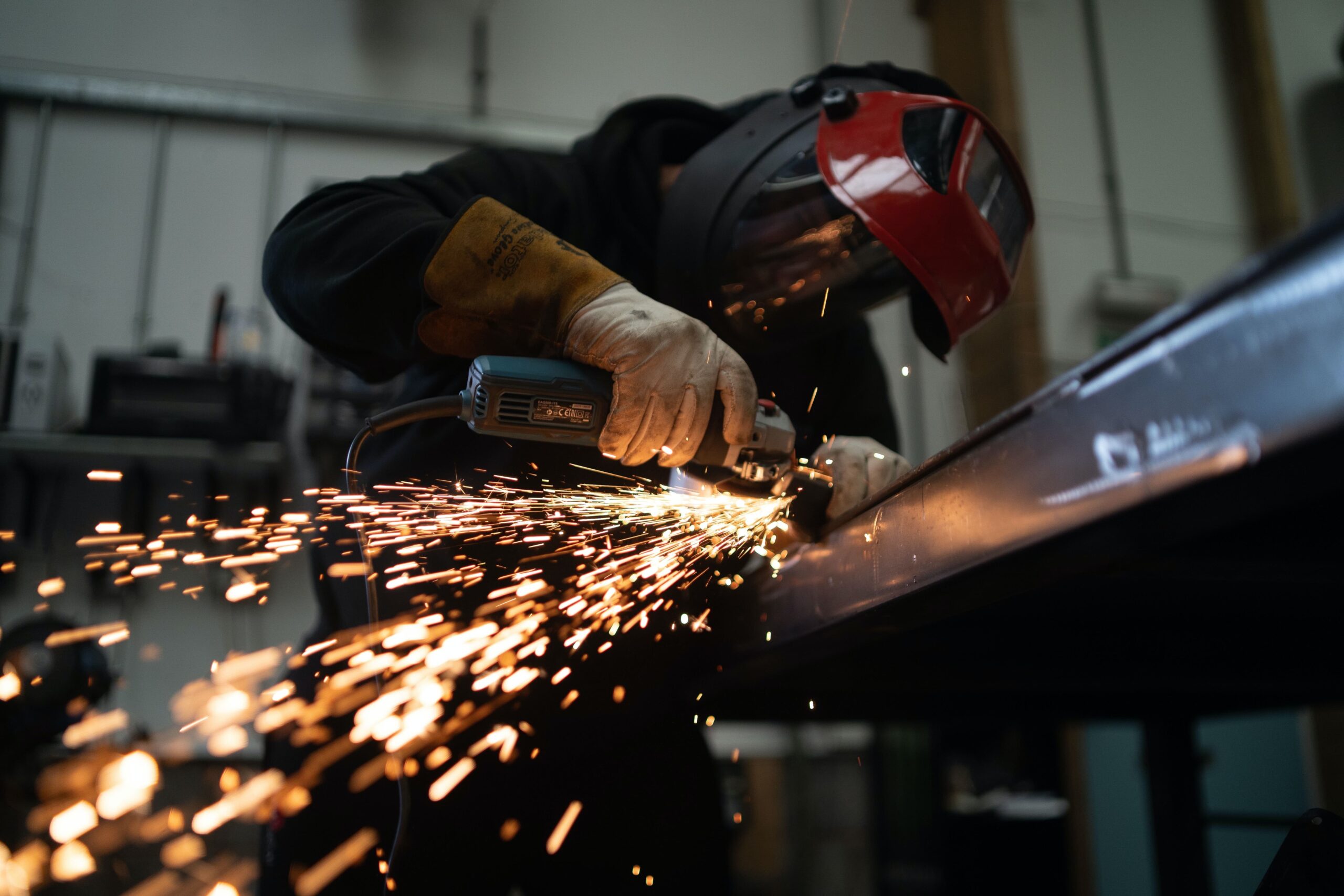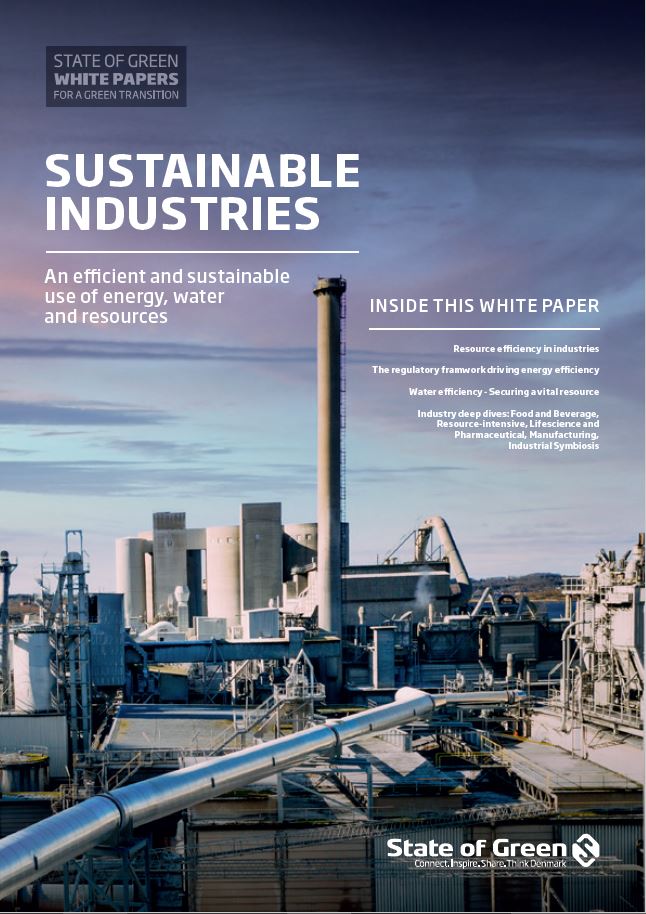Download our publication on sustainable industries
This article is part of our publication ‘Sustainable industries’.
Download nowPerspective
Industry


Manufacturing industries globally are responsible for a major part of economies’ emissions and resource use. In Denmark, the example shows that decoupling production from resource use is possible.
Manufacturing industries are major consumers of energy, water and other resources in most countries – responsible for a large share of society’s energy consumption and CO2 emissions. Due to their efficient organisation and size, manufacturing companies can achieve sizeable efficiency gains by investing in efficiency measures, providing a positive business case for thecompany while protecting the climate.
In Denmark, a wide range of instruments are used to accelerate energy efficiency in industry. They include information campaigns, sharing of best practices and consultancy. There are concrete financing instruments for pinpointed solutions or general efficiency investments. Target setting at company, industry or country level combined with voluntary or mandatory reporting and certification. Through these measures, the Danish manufacturing industry has been able to increase manufacturing output by 35 per cent while CO2 emissions have been reduced by 65 per cent. This decoupling of emissions from manufacturing output is explained primarily by increased efficiency (55 per cent), electrification and fuel switching (15 per cent), and offshoring of production (30 per cent).
Experience shows that large efficiency improvements can be achieved through optimised production equipment, buildings and workflow, by realising the full potential of digitisation, by behavioural changes and a strong focus from management’s side. Further improvements are obtained by switching to a greener energy supply and by harvesting the potentials in surplus energy and water resources that would otherwise have been wasted.

This article is part of our publication ‘Sustainable industries’.
Download nowElectricity constitutes 32 per cent of total energy use in the manufacturing industry. This share has increased since 1990 but stagnated in recent years. However, further use of electricity in industry instead of fossil fuels is a viable method to decrease the carbon footprint of industry, bearing in mind that today electricity in Denmark is primarily sourced from renewables, with a share of wind energy close to 50 per cent and a total share of renewables above 60 per cent.
Studies suggest that most industrial processes can be converted to electricity from a technological point of view. The change is difficult for industries that require high temperature processes and thermal energy at high rates. A new Danish project identifies technologies and methods that allow the efficient use of electric power for process energy supply. The project has started out focusing on drying and evaporation processes. Furthermore, the case companies all undergo a thorough energy performance audit, enabling them not only to switch to electricity but also to realise overall energy savings through process optimisations.
Increasing electrification will improve industry’s competitiveness, as electrified processes often contain large economic savings which give a direct improvement in the company’s competitive position inthe form of lower costs. In addition, the process of electrification is an opportunity to optimise energy and resource use in general, yielding further economic and climate savings. The electrification resulting in lower CO2 emissions is a marketable advantage over manufacturing companies – and will be even more so in the future with increased climate awareness.
solutions
Combined heat and power production
+6
solutions
Energy efficiency in buildings
+2